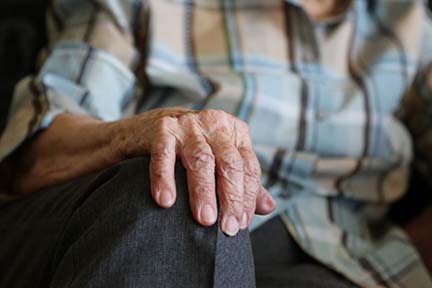Press Release FOR IMMEDIATE RELEASE: Nov. 24, 2021 CONTACT: Lynn Sutfin, 517-241-2112, SutfinL1@ MDHHS highlights long-term care facility LANSING, Mich. – With the holiday season upon us, the Michigan Department of Health and Human Services (MDHHS) is reminding Michiganders about long-term care visitation guidance designed to protect residents from COVID-19 while still allowing for visitation from family and friends. MDHHS has updated its guidance based on recent changes to Centers for Medicaid and Medicare recommendations. “Long-term care residents receive physical, emotional and spiritual support by visiting with their family and friends, particularly during the holiday season,” said Elizabeth Hertel, MDHHS director. “Our updated guidance provides key steps to take to make these visits as safe and fulfilling as possible.” “In these incredibly challenging times we are grateful for the opportunity to give thanks. This Thanksgiving residents and their loved ones will have the opportunity to connect and be together,” said HCAM President/CEO Melissa Samuel. “COVID cases remain at a very high level, and it is critical family and friends follow all current precautions to protect all residents and staff when visiting Michigan’s skilled nursing facilities. Per CMS, if a visitor, resident or their representative is aware of the risks associated with visitation, and the visit occurs in a manner that does not place other residents at risk (e.g., in the resident’s room), the resident must be allowed to receive visitors as he/she chooses. Previous public health precautions were designed to prevent visitors from introducing COVID-19 into long-term care facilities, but the risks of COVID-19 transmission related to visitation is low, especially when core principles of infection prevention are observed and in settings where vaccination rates are high. Approximately 84% of residents in long-term care facilities in Michigan are fully vaccinated. Booster doses are also now available to those that live or work in long-term care settings. MDHHS strongly recommends long-term care facilities schedule onsite clinics so residents, staff and visitors can receive vaccinations and boosters as soon as possible. Additional updates to CMS guidance include the following:
In addition, although recommended by MDHHS, visitor testing is not required to visit. Facilities in counties with substantial or high levels of community transmission are encouraged to offer testing to visitors onsite or may encourage visitors to have testing two to three days before coming to the facility. |


